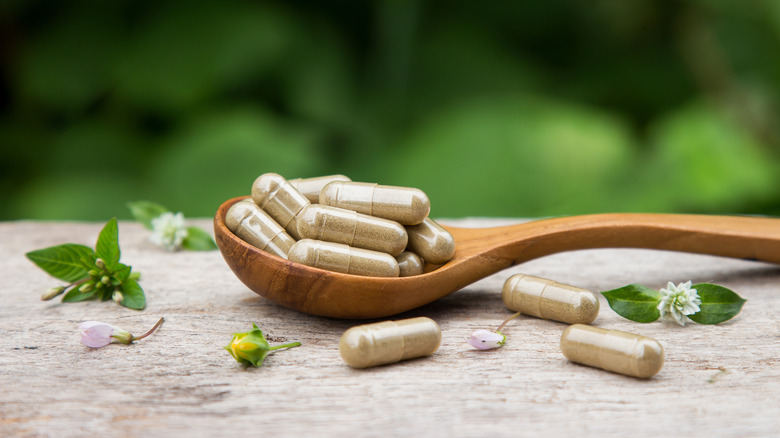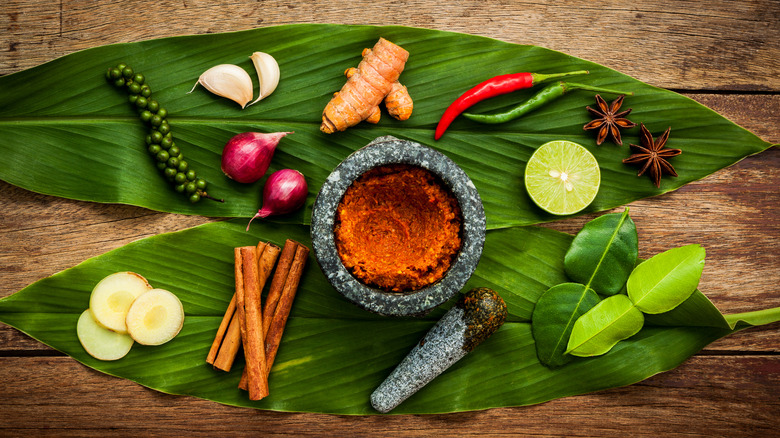Supplements You Didn't Realize Could Thin Your Blood
A blood clot can be an especially alarming health condition. According to WebMD, symptoms of blood clots vary depending on their location. Earmarks of a clot can be swollen legs or arms, swollen or painful veins, and bloody stools or blood in the urine. Blood clots can lead to heart attacks and even strokes. If you see any of these signs, consult a health care professional right away (via American Heart Association).
These conditions are typically treated with anticoagulants that help the blood to flow through veins freely, per MedicineNet. Medications such as warfarin and Eliquis are frequently prescribed to thin the blood and break down clotting masses (via Mayo Clinic). Additionally, certain foods and supplements also thin our blood naturally (via Medical News Today). However, health professionals may advise against these supplements for those currently on anticoagulant medications. Let's take a look at some supplements that have blood-thinning properties. Note: Always ask your doctor before trying out any new supplements.
These supplements can reduce your risk of blood clots
According to WebMD, ginkgo biloba may be useful in preventing blood clots as it thins the blood. Additionally, MedicineNet noted that dong quai, which is used in Chinese medicine, contains natural traces of coumarin, a compound used to make blood thinners.
According to WebMD and Healthline, Supplements like bromelain, an extract from pineapple, may also reduce your risk of blood clots and heart disease (via Healthline). Even ginger and garlic can be useful in thinning the blood (via WebMD). A few more surprising spices on the list are cinnamon, turmeric, and cayenne pepper, according to Healthline. You may have also heard that vinegar can prevent blood clots — but is it true? Cardiologist Bennett Werner confirmed on HealthTap that vinegar actually does not thin the blood. In fact, too much of it can disrupt the body's pH balance, leading to acidosis. However, this doesn't mean you need to avoid vinegar altogether — just stick a moderate amount.
Since supplements may not be safe for all individuals and dosages widely vary, you'll want to consult your doctor before you consider adding them to your daily routine.


